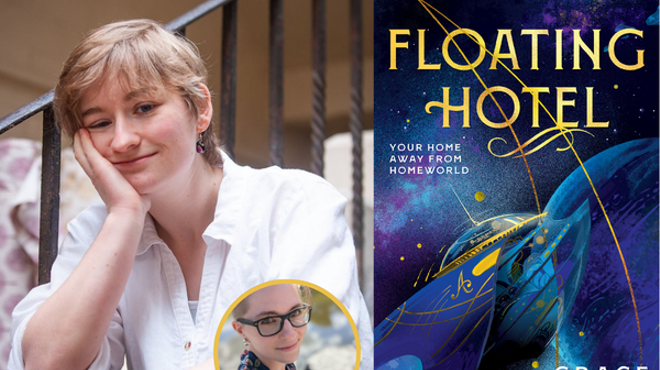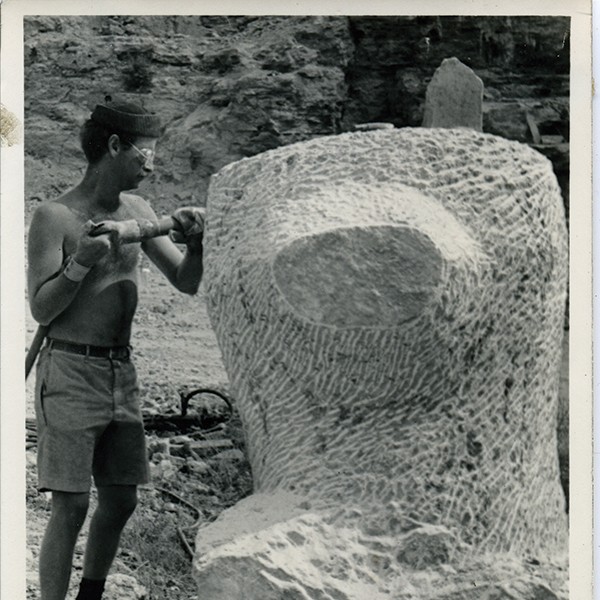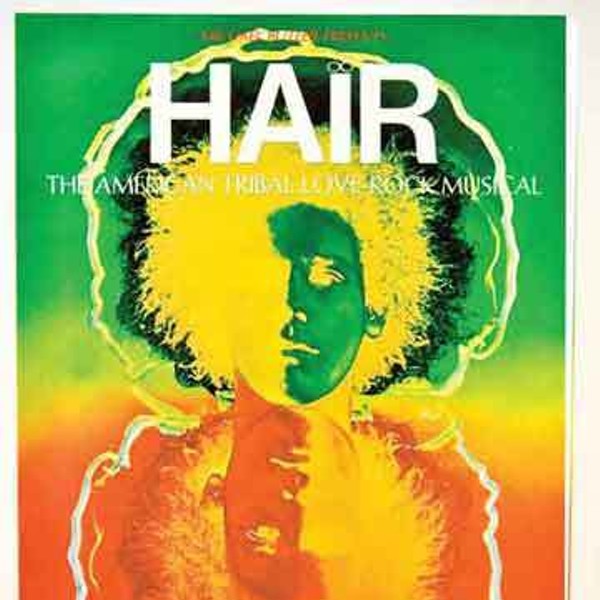“Mrs. R (as we called her) would buy a season’s subscription, at the reduced rate, and then use them all in one night—guests and her different grandchildren. Strictly against the policy. But who would say no to her? She wasn’t using her ‘position’ so much doing so, but acting within the Hudson Valley nobility’s attitude about such matters.”
“But what could we do?” Polly asked rhetorically.
No Room at the Inn
The son of Chicago poet Edgar Lee Masters and a successful novelist in his own right, Hilary Masters, now 80, is a professor of writing at Carnegie Mellon University. In 1953, he was a struggling New York press agent and had worked that winter at a theater in York, Pennsylvania, where he met George Quick, who mentioned that he’d met the woman who bought the old Vanderbilt stables and he was going in as coproducer. Quick later recommended Masters to Polly McCulloch to handle publicity for the new summer stock theater in Hyde Park.
Masters was already married when he came to work at the Playhouse, but he and Polly fell “madly in love,” he said, and after he drove to Nevada for a divorce in 1955, they got married.
One of Masters’s publicity coups was arranging for Life magazine to include the Playhouse as part of a spread on straw-hat theaters around the circuit. His surprise when a car appeared at the front gate while he was working in the business office echoed Polly’s experience with the former First Lady, but with a difference. A white female reporter got out of the car with an African-American photographer named Gordon Parks. Masters panicked. “Where am I going to put them up?!” he recalls thinking. Before they had passed through the gates of the property, he was on the phone to motels in Hyde Park, all of which declined to have Parks stay with them. Masters saw through the excuse offered by owners and managers that guests would complain, but he had no time to argue. Finally, he called the minister at St. James Church, just a short walk from the theater. The minister wasn’t home, but his wife also refused to have Parks stay in her home. Embarrassed and flustered, Masters said he “lied like crazy” to Parks and the reporter, saying all the motels were booked. Parks knew better, but he “was really cool,” Masters added. They ended up staying in a Poughkeepsie hotel.
Still, Hilary Masters remembers those years as “very pleasant.” Hyde Park was small; he and Polly made friends easily, and “politics didn’t seem to matter much.” They generally got along with their neighbor, Elmer Van Wagner Sr., though they occasionally tussled over the use of the narrow private road that accessed the Playhouse from Route 9. Masters laughed as he recalled that once Van Wagner had “a couple of drinks...he’d be better.”
They produced eight or nine plays each season for the first three years, inaugurating the new theater with “Gigi” on June 14, 1954. Among the plays were “Pygmalion,” “The Caine Mutiny,” “The Importance of Being Earnest,” and “The Contrast.” Masters and Quick assembled a resident company of professional actors, designers, and technicians and brought in stars like Marjorie Gateson and silent-film star Buddy Rogers for the leading roles. Hilary Masters recalls that coming out of silent films, Rogers had trouble remembering his lines. He was a handsome man—“beautiful,” Masters called him—and was married to Mary Pickford, who was exceptionally jealous and called often to make sure that the early groupies who surrounded Rogers were kept at bay. “How’s my boy doing?” she’d ask Masters. Another “Buddy,” an apprentice named Buddy Reynolds, had his professional acting debut on the Hyde Park stage the following year playing a convict in a French penal colony in the recent Broadway hit comedy “My Three Angels.” Joanne Woodward thought well enough of the apprentice to introduce him to her agent, and he later gained fame as Burt Reynolds. The company’s “resident ingénue,” according to Masters, was Joselyn Brando, Marlon’s sister, who had been blacklisted and quietly found work at the playhouse.
Plays ran Tuesday through Saturday, from mid-June through late August, and Polly remembers doing good weekend business—though neither she nor Hilary recall doing exceptionally well. Hilary said they had a lot of trouble getting attention, and even all these years later, there was a hint of bitterness in his voice as he called the Poughkeepsie Journal “awful,” devoting much more attention to the established theaters in Fishkill, Woodstock, and Danbury.
















